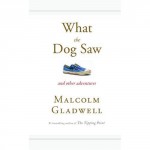I used to read quite a lot in the days Before Children. Now it takes a lot more effort and I sure don’t go through the same number of books that I used to. I don’t read a lot of fiction anymore, it seems hard to find novels that have the legs to be interesting right to the last page.
In the past few years, I’ve tried to get through a couple of books each year that have a bit of meat on their bones – some can be quite heavy sledding at times and really need to be read on vacation. Last year I managed to get through both The Guns of August by by Barbara Tuchman and Paris 1919 by Margaret MacMillan, two histories that bookend the Great War. They were both fascinating and it took most of the summer to get through the two books.
I didn’t get a lot of reading done in the last part of the year despite thinking that I might read a bit while recovering from the sinus surgery. As it turned out, daytime TV was more my speed – at least until I was off the Tylenol 3’s when suddenly the topics were a lot less gripping! Since Christmas, though, I’ve gotten through a couple of books. I cheated a bit, however; one of the books was actually an audiobook that I listened to while driving to and from work.
So, with that intro, here are a couple of short reviews.
 The Element: How Finding Your Passion Changes Everything by Sir Ken Robinson with Lou Aronica (ISBN 1-400-16060-X) 2009
The Element: How Finding Your Passion Changes Everything by Sir Ken Robinson with Lou Aronica (ISBN 1-400-16060-X) 2009
This was the audiobook, an MP3 format CD with approximately 8 hours of content. As far as the format goes, the audiobook is a convenient way to put the daily commute to better use than anything the local radio stations can muster, but it does demand a fair bit of concentration and a good “skip backwards” function on the car stereo is very helpful.
As for the book itself, Robinson contends that for an individual to truly find success in life they must find their “element”. The peaks of human potential are best realized when an individual finds the combination of interest, passion and opportunity that allows them to excel in an area in such a way as to be energized and fulfilled by that activity. Not that the element leads to fame or financial success, it often does not, nor that being in the element chases all problems away; but it does provide a sense of satisfaction and fulfillment that is real and lasting.
Robinson’s background is in the arts and many of his examples are from that world. His arguments are well reasoned and compelling enough to make the reader think about whether jobs or hobbies or pastimes really reflect being in the element. Despite occasionally heavy-handed linkages to environmentalist themes, Robinson’s view that society would be better served through greater emphasis on individual potential and less emphasis on the hierarchical structures we have inherited from the industrial revolution is well stated and worth pondering.
A good read (or listen) and quite thought provoking.
 The Mother Tongue by Bill Bryson (ISBN 0-380-71543-0) 1990
The Mother Tongue by Bill Bryson (ISBN 0-380-71543-0) 1990
This book has been around for almost 20 years and parts of it gave me a sense of deja vu despite having no recollection of reading it in the past. In any event, Bryson takes a light-hearted look at the history, origins and spread of the English language from the first influx of Angles and Saxons into the British Isles up to the latter part of the 20th century. While The Mother Tongue would not be mistaken for a textbook on the English language, it obviously represents the result of some scholarly effort as would befit an author who eventually became a university chancellor.
The Mother Tongue addresses the spread of English as, arguably, the preeminent language of commerce and interaction globally. Not that the majority of the world’s population is fluent, but that a significant minority can communicate sufficiently to make English the language of choice for making the best of a bad situation. In fact, there are apparently a handful of words such as, airport, passport, hotel, telephone, stop, OK and no problem that are universally understood. English isn’t easy for any of us – Bryson recounts many examples, some trivial, some not, where the language is bewilderingly obtuse. Everything from the perils of pronunciation (why don’t heard and beard rhyme?) to the inexplicable differences between British and American English (why does presently mean “now” in North America, but “in a little while” in Britain?) are topics addressed with no small measure of humour.
If you are interested in words, history or language, The Mother Tongue is well worth spending some time reading.
 What the Dog Saw by Malcolm Gladwell (ISBN 978-0316075848) 2009
What the Dog Saw by Malcolm Gladwell (ISBN 978-0316075848) 2009
